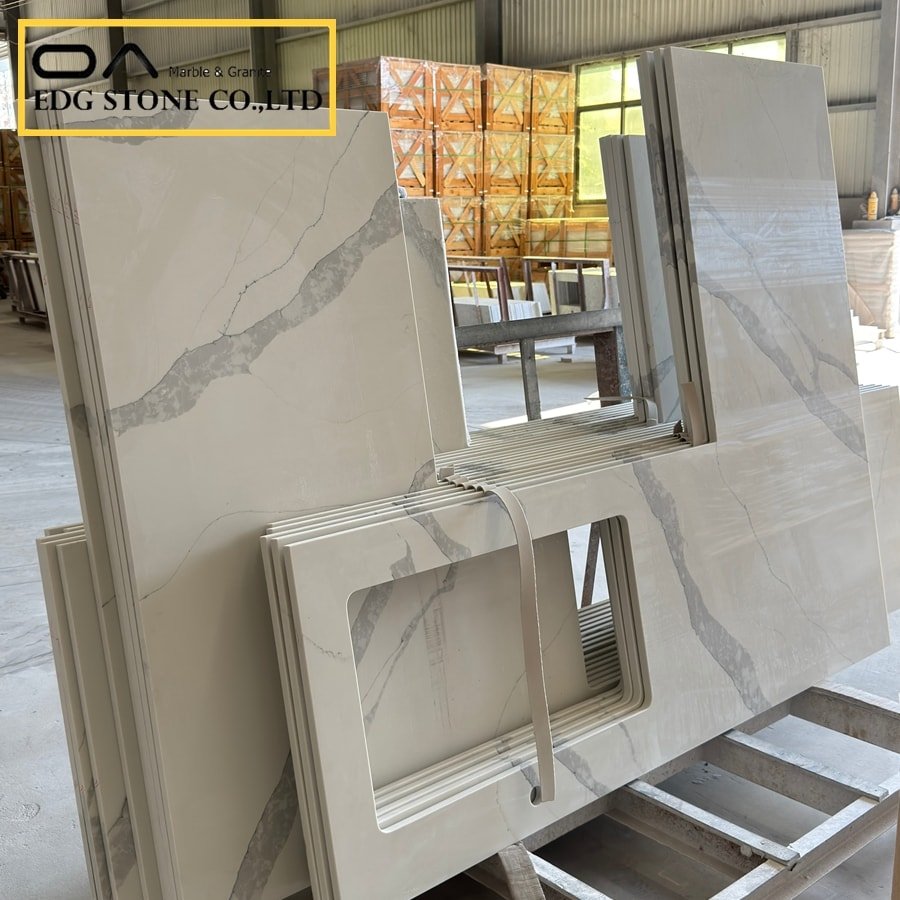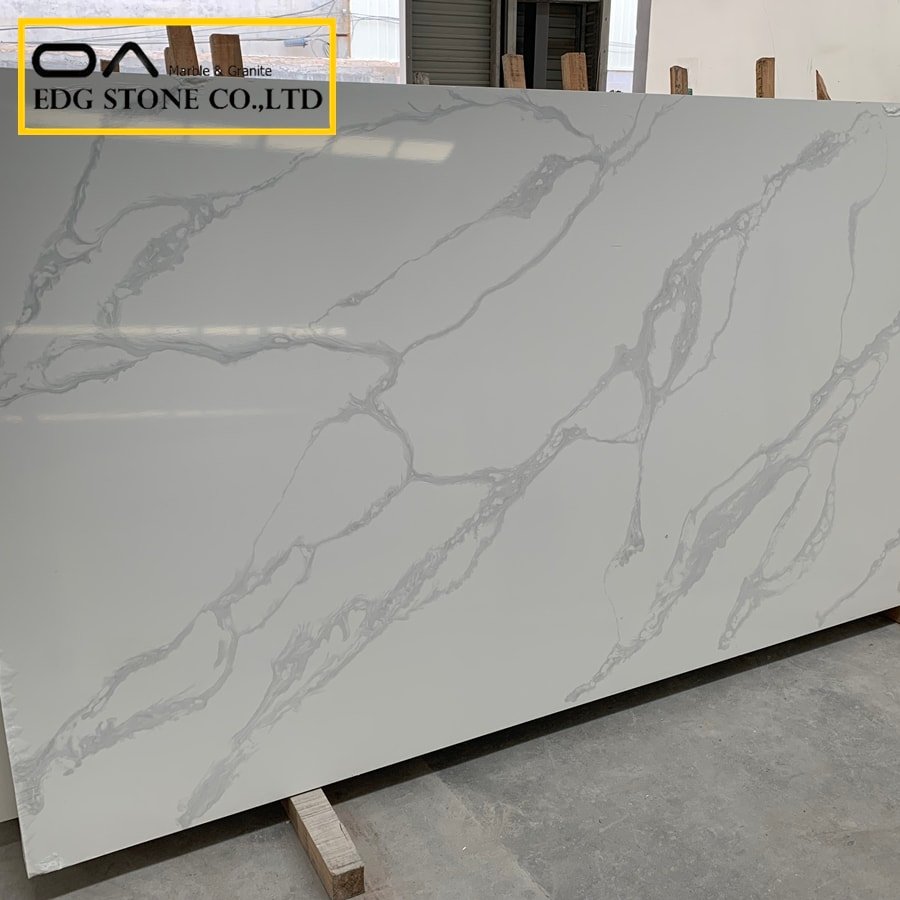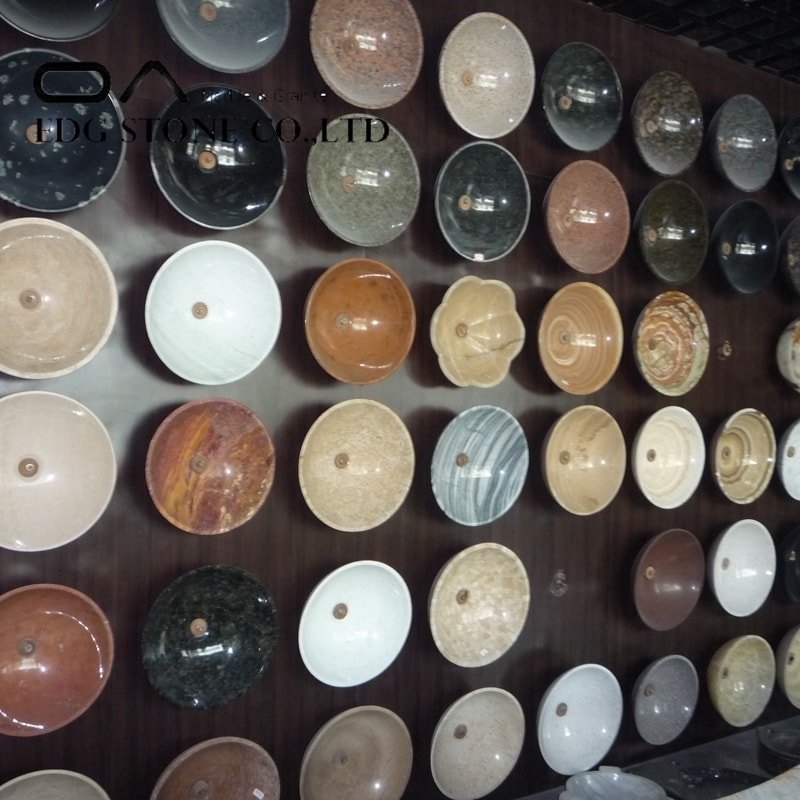Nowadays, many friends often use stone decorations when decorating their homes. Quartz stone is undoubtedly the stone that is loved and chosen by many friends. However, some friends may ask, is quartz stone man-made or natural? In fact, there are both natural quartz stones and artificial quartz stones on the market. Let’s take a look at how to distinguish between them.
Is quartz stone man-made or natural? How to distinguish?
What is natural quartz stone?
It is a material made by artificial mining, cutting, polishing, and other processes of stone produced by various activities of the earth’s crust in nature.
What is artificial quartz stone?
It is a new type of stone artificially synthesized by more than 93% quartz crystals plus resin and other trace elements. It has some excellent qualities that conventional artificial stone does not have. The main material of artificial quartz stone is silicon dioxide, which is a kind of material with very stable chemical properties and is difficult to produce chemical reactions. Therefore, artificial quartz stone is a non-toxic and non-radiation green environmental protection decorative stone.
What are the advantages and disadvantages of natural quartz stone and artificial quartz stone?
1. The advantages of natural quartz stone
(1) The hardness is relatively high and it has good corrosion resistance. It is the best to use as the countertop of the cabinet in the kitchen.
(2) Natural quartz stone has a great guarantee in color and photosynthesis, and the color is also diverse.
2. Disadvantages of natural quartz stone
Because it is a purely natural stone, it takes a lot of effort both in material selection and processing, so the price is relatively expensive.
3. The advantages of artificial quartz stone
(1) The artificial quartz stone does not need to be mined on the mountain, and it can also play a good role in protecting the resources and the environment.
(2) Artificial quartz stone is artificially made, so the color of each area will not be too different, it will be more uniform, and the color and texture of the stone will be more selective. The point is that the price is cheaper than natural quartz stone.
4. Disadvantages of artificial quartz stone
(1) The service life of artificial quartz stone is shorter than that of natural quartz stone.
(2) Because the artificial quartz stone is artificially synthesized, it is inevitable that some unscrupulous merchants will make hands and feet on the stone material, and add some organic solvents to accelerate the adhesion of the stone, which will cause the stone to contain more harmful substances. May cause harm to the human body.
1. Weight comparison
Due to the different compositions of the two, the weight of natural quartz stone is naturally heavier than that of artificial quartz stone.
2. Hardness comparison
The hardness of natural quartz stone is much greater than that of artificial quartz stone, so natural quartz stone is mostly used on kitchen countertops, while artificial quartz stone is mostly used on bathroom countertops.
3. Thickness comparison
The thickness of natural quartz stone is generally about 15 cm, while the thickness of artificial quartz stone is generally about 11-12 cm.
4. Appearance comparison
The main component of natural quartz stone is the quartz crystal, so there are generally transparent or translucent particles; while artificial quartz stone is mostly opaque particles.
5. Hand feel comparison
The feel of natural quartz stone is cold, more like the touch of natural stone; the feel of artificial quartz stone is warm and delicate, similar to the texture of high-grade plastic.
6. Comparison of splicing methods
The splicing of natural quartz stone usually has a certain gap, while the artificial quartz stone is relatively soft, so it can be curved. Generally, there will be no gaps in the splicing. Of course, if it is a technical problem of the installation master, we must say otherwise. NS.
7. Price comparison
The complexity of the material and processing of natural quartz stone determines its price will be higher than that of artificial quartz stone.









